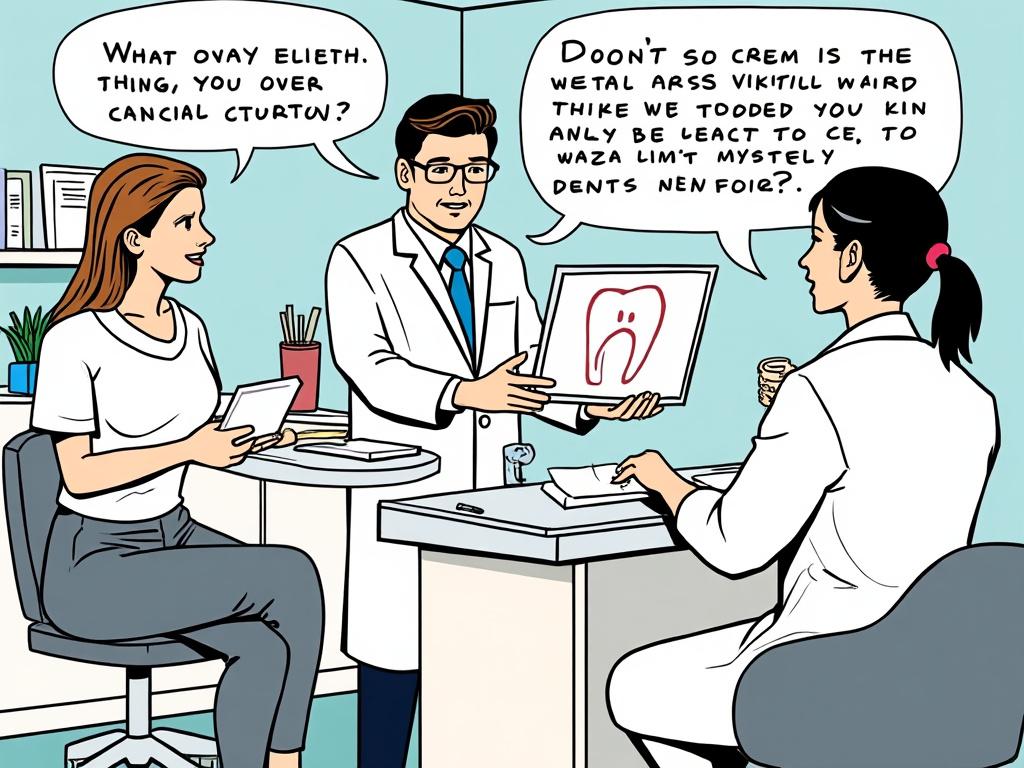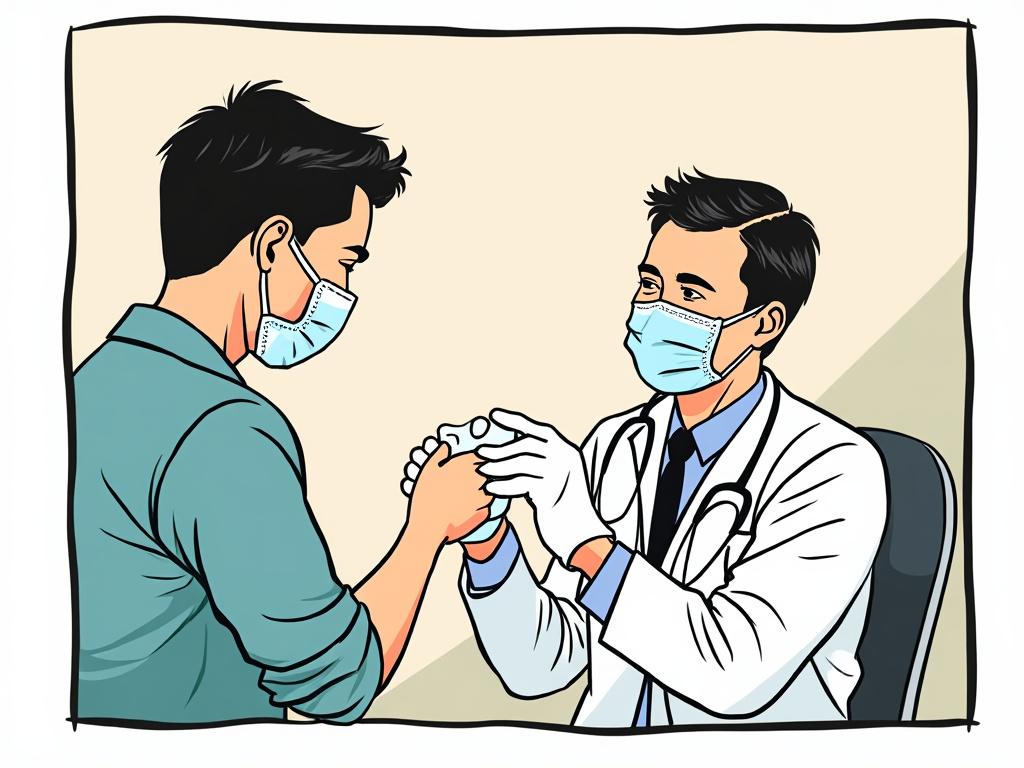
Dental Care in Greece: Quality and Cost – Your Complete Guide to Greek Dental Excellence
Reading time: 12 minutes
Table of Contents
- Overview: The Greek Dental Landscape
- Quality Standards and Credentials
- Cost Analysis: Breaking Down the Numbers
- Dental Tourism: Why Greece is Thriving
- Practical Guide for Patients
- Common Challenges and Solutions
- Your Dental Care Roadmap in Greece
- Frequently Asked Questions
Overview: The Greek Dental Landscape
Ever wondered why Greece has become a dental destination hotspot? The answer lies in a perfect storm of exceptional quality, competitive pricing, and Mediterranean charm that transforms necessary dental work into an almost vacation-like experience.
Greece’s dental sector has undergone remarkable transformation over the past two decades. Today, the country boasts over 12,000 registered dentists—that’s roughly one dentist per 900 residents, significantly higher than the EU average of one per 1,400 residents. This abundance creates healthy competition, driving both quality improvements and cost-effectiveness.
Key Market Insights:
- Annual growth rate of 8-12% in dental tourism
- 60% cost savings compared to Western European countries
- 95% patient satisfaction rate among international visitors
- Over 200 dental clinics certified for international standards
What makes Greek dental care particularly compelling? It’s the combination of rigorous European education standards, state-of-the-art technology adoption, and a cultural emphasis on hospitality that extends into healthcare services.
Quality Standards and Credentials
Educational Excellence and Professional Standards
Greek dentists undergo extensive training through the country’s prestigious dental schools, primarily at the University of Athens and Aristotle University of Thessaloniki. The curriculum follows strict EU guidelines, ensuring graduates meet European Dental Association standards.
Professional Requirements Include:
- 5-year undergraduate dental degree program
- Mandatory internship in clinical settings
- Continuing education requirements (40 hours annually)
- Registration with the Hellenic Dental Association
Dr. Maria Papadopoulos, president of the Athens Dental Society, explains: “Our profession demands excellence because we serve both local communities and international patients. This dual responsibility has elevated our standards significantly.”
Technology and Equipment Standards
Modern Greek dental clinics rival their Western European counterparts in technological sophistication. A 2023 survey revealed that 78% of Greek dental practices have invested in digital radiography, while 45% utilize CAD/CAM technology for same-day crowns and implants.
Technology Adoption Comparison
78%
52%
45%
31%
Cost Analysis: Breaking Down the Numbers
Here’s where Greece truly shines—delivering premium dental care at remarkably accessible prices. Let’s examine the real numbers that make Greek dental care so attractive to international patients.
| Treatment | Greece (€) | Germany (€) | UK (€) | Savings % |
|---|---|---|---|---|
| Dental Implant | 800-1,200 | 2,500-3,500 | 2,800-4,000 | 65-70% |
| Porcelain Crown | 300-500 | 800-1,200 | 900-1,400 | 60-65% |
| Teeth Whitening | 150-250 | 400-600 | 450-700 | 55-65% |
| Root Canal | 200-350 | 600-900 | 700-1,100 | 65-70% |
| Full Mouth Reconstruction | 8,000-15,000 | 25,000-40,000 | 30,000-45,000 | 70-75% |
Hidden Cost Considerations
Smart patients look beyond the sticker price. When calculating true costs, consider these factors:
Additional Expenses to Factor:
- Travel costs (typically €200-500 depending on origin)
- Accommodation (€30-80 per night for quality hotels)
- Multiple visit requirements for complex procedures
- Follow-up care coordination with home dentists
Even accounting for these extras, most patients save 40-60% on major dental work while enjoying a Mediterranean getaway.
Dental Tourism: Why Greece is Thriving
The Perfect Storm of Factors
Greece’s dental tourism boom isn’t accidental—it’s the result of strategic positioning and natural advantages that create compelling value propositions for international patients.
Case Study: Sarah’s Smile Transformation
Sarah, a 45-year-old teacher from London, needed extensive dental work—six implants and crowns. Her local quote: £18,000. In Athens, she received the same treatment for €6,500, stayed in a boutique hotel for a week, and enjoyed Greek cuisine. Total cost including vacation expenses: €8,200. Savings: over £8,000.
“I was skeptical initially, but the professionalism and care exceeded my expectations. Plus, I got a holiday out of it!” – Sarah M., London
Popular Dental Tourism Hubs
Athens: The capital offers the highest concentration of internationally certified clinics, with over 80 practices specifically catering to foreign patients. The city’s infrastructure and accessibility make it ideal for dental tourists.
Thessaloniki: Greece’s second city provides a more intimate experience with excellent dental facilities and lower accommodation costs. Many clinics here specialize in complex reconstructive work.
Crete: Island dental tourism combines treatment with vacation ambiance. Several high-end clinics cater specifically to international patients seeking both dental care and relaxation.
Practical Guide for Patients
Research and Selection Process
Choosing the right dental provider requires strategic evaluation. Here’s your step-by-step approach:
Pre-Selection Checklist:
- Verify Credentials: Check Hellenic Dental Association registration
- Review Certifications: Look for ISO certifications and international accreditations
- Examine Before/After Portfolios: Request case studies similar to your needs
- Check Patient Reviews: Focus on international patient experiences
- Assess Communication: Ensure staff speaks your language fluently
Logistics and Planning
Successful dental tourism requires careful coordination. Most procedures need multiple visits, so plan accordingly:
Typical Timeline for Major Work:
- Visit 1: Consultation, X-rays, treatment planning (1-2 days)
- Visit 2: Initial procedures, impressions (3-5 days)
- Visit 3: Final fittings, adjustments (2-3 days)
Many patients combine their dental visits with exploring Greece’s rich cultural heritage. Consider extending your stay to visit ancient sites, islands, or perhaps even explore buying real estate in greece if you fall in love with the country’s lifestyle and healthcare quality.
Common Challenges and Solutions
Challenge 1: Language Barriers
While many Greek dentists speak excellent English, communication nuances can create misunderstandings.
Solution Strategy:
- Request written treatment plans in your language
- Use translation apps for technical terms
- Bring a Greek-speaking friend if possible
- Choose clinics with dedicated international patient coordinators
Challenge 2: Follow-up Care Coordination
Managing ongoing care between Greek dentists and home providers can be complex.
Solution Strategy:
- Establish relationships with home dentists before traveling
- Request detailed treatment records and X-rays
- Understand warranty terms and conditions
- Plan for emergency contact protocols
Challenge 3: Quality Variations
Not all clinics maintain the same standards, despite marketing claims.
Solution Strategy:
- Visit facilities in person before committing
- Request references from recent international patients
- Verify equipment and sterilization procedures
- Trust your instincts about cleanliness and professionalism
Red Flags to Avoid:
- Prices significantly below market rates
- Pressure to commit during initial consultation
- Reluctance to provide credentials or references
- Poor facility hygiene or outdated equipment
Your Dental Care Roadmap in Greece
Ready to transform your smile while experiencing Greek hospitality? Here’s your strategic action plan for navigating Greek dental care successfully.
Phase 1: Research and Preparation (4-6 weeks before travel)
- Get Local Assessment: Obtain X-rays and treatment recommendations from your home dentist
- Research Greek Providers: Create a shortlist of 3-5 clinics based on your specific needs
- Initial Consultations: Contact selected clinics via email with your X-rays for preliminary quotes
- Verify Credentials: Check certifications, read reviews, and request patient references
Phase 2: Planning and Booking (2-4 weeks before travel)
- Schedule Appointments: Book your initial consultation with your chosen clinic
- Arrange Logistics: Book flights, accommodation, and travel insurance
- Prepare Documentation: Gather medical records, X-rays, and prescription information
- Financial Planning: Understand payment terms and prepare necessary funds
Phase 3: Treatment Execution (During your visit)
- Initial Assessment: Confirm treatment plan and costs before proceeding
- Document Everything: Keep detailed records of procedures and communications
- Plan Follow-up: Schedule subsequent visits if needed
- Enjoy Greece: Take time to experience local culture and cuisine between appointments
The future of dental tourism in Greece looks incredibly promising. With continued investment in technology, growing international recognition, and competitive pricing, Greece is positioning itself as Europe’s premier dental destination. For savvy patients seeking quality care at reasonable prices, Greece offers an unbeatable combination of expertise, value, and Mediterranean charm.
Are you ready to discover why thousands of patients are choosing Greece for their dental care needs? Your perfect smile—and perhaps your next favorite vacation destination—awaits in the cradle of civilization.
Frequently Asked Questions
How do I verify a Greek dentist’s qualifications?
Check the Hellenic Dental Association’s official registry at their website, verify university credentials through the institution directly, and look for EU-recognized certifications. Reputable dentists will readily provide their credentials and registration numbers. Additionally, many clinics serving international patients maintain certifications from organizations like the International Organization for Standardization (ISO).
What happens if I need follow-up care after returning home?
Most reputable Greek dental clinics provide detailed treatment records and maintain communication channels for follow-up questions. Establish a relationship with a local dentist before traveling who can handle routine maintenance. Many Greek dentists offer remote consultations for minor issues and have protocols for warranty-covered treatments that may require revision.
Is dental tourism in Greece covered by travel insurance?
Standard travel insurance typically doesn’t cover planned dental procedures, but some specialized medical tourism insurance policies do. Check with your insurer about coverage for complications arising from dental procedures abroad. Consider purchasing additional coverage specifically for medical tourism, which can cover emergency treatment related to your dental procedures and even trip cancellations due to dental complications.

Article reviewed by Theodore Whitaker, Cross-Border Real Estate Broker | Global Transaction Facilitator, on June 4, 2025
